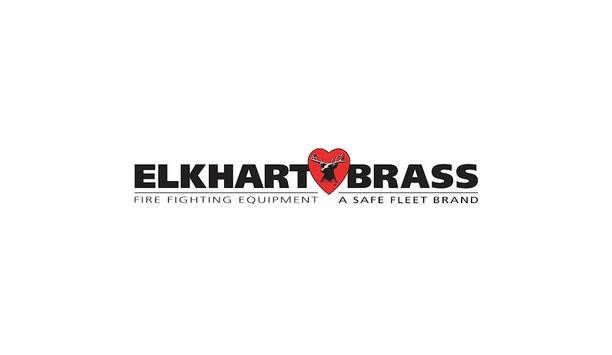“Nitrile gloves witnessed a CAGR of US$ 7.162 billion in sales in the year 2018. The large application scope of the medical, dental, healthcare, food processing, and pharmaceutical industries has positively influenced demand for Nitrile Gloves."
"Hand protection equipment alone had the largest share of the total PPE demand growing at a CAGR of 6.4% over the forecast period."
hand safety
Over the last few years, hand safety at the workplace has become a rising concern.
According to a recent study, approximately a million workers (approximately) from across industries such as manufacturing, construction, automotive, food processing, and pharmaceutical industries, etc. were sent to the emergency room last year due to serious hand injuries.
industrial safety gloves
The least employers can do is make nitrile safety gloves mandatory for the safety and well-being
With such a high number of cases, the need for industrial safety gloves especially nitrile hand gloves becomes evident. It is one of the first workplace requirements to ensure worker safety, especially for workers in industries such as mining & metallurgy, warehousing and assembling, oil, gas and petrochemicals, chemical and paint, material handling, agriculture, paper, forestry, and FMCG.
And since nitrile-coated hand gloves are compatible with the specific hand safety requirements of most industries, the least employers can do is make nitrile safety gloves mandatory for the safety and well-being of their workers.
Why Nitrile Gloves?
There are certain reasons for suggesting Nitrile hand gloves in the above-shared industries. Let’s take a look at all such factors one by one.
- Advantages of synthetic rubber over other materials: Nitrile, also known as synthetic rubber, is widely preferred for manufacturing industrial hand safety gloves due to its unique features. Nitrile-coated hand gloves are FDA-approved products. They possess excellent protection advantages such as stretchability, durability, and chemical resistance during operations, therefore fostering demand.
- Offers a high level of safety & protection from punctures and chemicals: Nitrile hand gloves offer a high level of protection from punctures as well as chemicals. As per a study conducted by lab consumers, it was found that nitrile gloves are a preferred choice over latex gloves due to the maneuverability and comfort of the gloves.
- Nitrile gloves are more effective: Nitrile gloves are more effective than latex, they prevent workers and patients from contacting dermatitis, and they are less likely to cause hypersensitivity and allergies as opposed to latex.
- Provide top-notch protection: The automotive industry recently started using nitrile gloves to protect their workers from harmful chemicals and other hazards. To give a gist, workers in this industry come in direct contact with several harmful chemicals and are constantly exposed to mechanical hazards like bruises, and cuts. Nitrile gloves provide the workers with top-notch protection against not just chemicals but also the listed mechanical hazards. The glove offers total protection from toxic chemicals, solvents, and cleaners.
Which Industries Can Use Industrial Nitrile Gloves?
Nitrile gloves have become a common worker safety essential for industries such as food, mining, oil, gas
It was observed that due to the high risk of skin allergies from latex gloves and injuries from harmful, nitrile gloves have become a common worker safety essential for industries such as food, mining, oil, gas, petrochemical, chemical & paint, and consumer goods.
However, as more industries are becoming aware of the constant risk to their worker’s safety, the significance of nitrile gloves is increasing and expanding to different industries. They are being used in more and more industrial settings for their dexterity and the superior protection they offer against oil and chemicals.
In addition to that, nitrile gloves can be used in industries:
- Where workers are exposed to caustic chemicals.
- Where workers are exposed to skin allergies and chemical burns from chemical splash and inhalation of toxic vapors.
- Where workers need cut-resistant nitrile gloves for high dexterity, enhanced grip, and protection against puncture, vibration, abrasion, heat, and oil.
What to look for while buying industrial safety nitrile gloves?
Nitrile gloves are quintessential for industrial workers. There’s no doubt about the validity of the statement.
However, buying any nitrile gloves won’t do, the buyer needs to take into account several factors to ensure the highest level of hand safety. Below is a list of all such factors:
- Industrial vs. Exam Nitrile Gloves: Depending on where the gloves are supposed to be used, one must choose between industrial-grade gloves v/s exam nitrile gloves. As the name suggests, exam nitrile gloves are medical-grade gloves that are created for use in the medical industry. On the other hand, industrial-grade gloves are made keeping in mind the different needs of workers in industrial settings.
- Nitrile Glove Size & Color: Using nitrile gloves of inconsistent sizes can hamper the worker’s performance. Plus, they may lack in providing the required flexibility to get the job done. The vice versa is true in case the gloves are of the right size.
- Nitrile Glove Thickness: Nitrile gloves are available in a variety of thicknesses, ranging between six to eight mm. However, if users need an extra layer of protection against harsh chemicals and environmental hazards, look for gloves with a higher thickness.
- Nitrile Glove Textures: If the nature of work in the industry requires the workers to work in wet & dry conditions such as the automotive, janitorial, and plumbing industry, look for gloves with added palm and finger texture to ensure enhanced grip.
- Powdered vs. Powder-Free Nitrile Gloves: Powdered nitrile gloves are extremely helpful in workplace settings wherein workers need their gloves to absorb extra moisture. However, due to the powder coating, they are messier options compared to powder-free nitrile gloves that offer textured fingertips to help improve fine motor tasks.
- Checking quality certifications: Each PPE product needs to qualify for certain quality tests and get certified before it can be used in various industrial settings. The same applies to nitrile gloves too. Mallcom has already mentioned the different quality standards nitrile gloves have been tested on. However, users must remember that nitrile gloves safety and quality certifications would change based on the country users are in. For instance, if users are in India, the relevant safety standard for safety gloves is the IS (ISI certifications). However, for any European country, the standards are EN 420: which defines the general requirement for glove design and construction, unconsciousness, comfort, and efficiency; TDB Blade cut resistance as per EN ISO 13997 levels.
Conclusion
Summing up, the need for industrial nitrile gloves can’t be denied. And if employers are looking for options to fulfill their needs, knowing how to find mallcom products as per the specific requirements of their business is important.
This content is an effort to help employers with the same, providing them with the required information before making the purchase.















